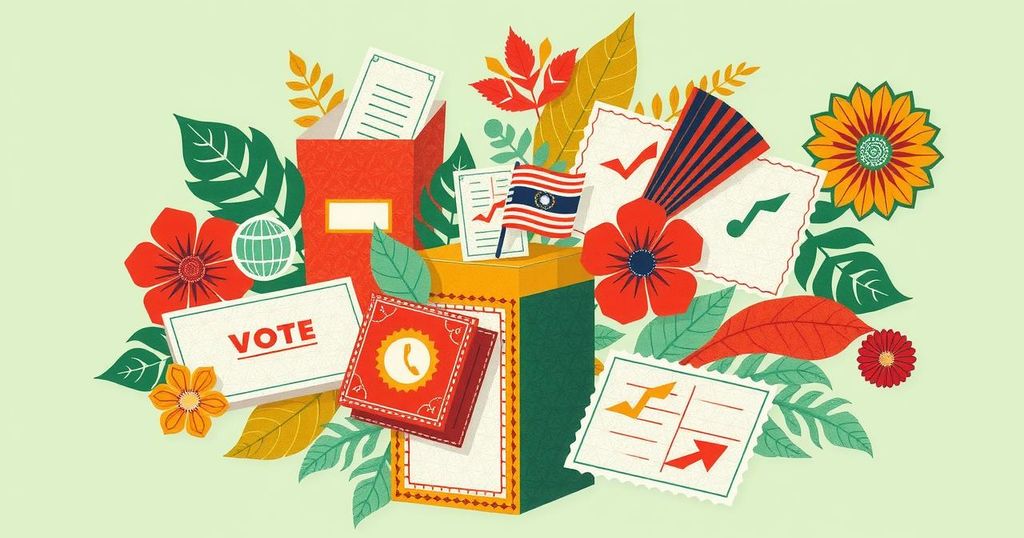President Trump signed an executive order to reform U.S. elections, mandating proof of citizenship for voter registration, ensuring ballots are received by Election Day, and prohibiting non-citizen donations in certain elections. The White House cited global examples, indicating the U.S. needs to improve election security compared to countries like India and Germany.
On Tuesday, President Donald Trump enacted an executive order aimed at significant reforms in the United States electoral processes. The key provisions of the order mandate documentary proof of citizenship for individuals registering to vote in federal elections. It also stipulates that all ballots must be submitted by Election Day and bars non-US citizens from contributing to certain elections.
President Trump emphasized the necessity for integrity in elections, stating, “We are going to have free and fair elections. And ideally, we go to paper ballots, same-day voting, proof of citizenship, very big, and voter ID, very simple.” He confirmed the administration’s commitment to securing the electoral system, asserting, “We will secure our elections, and they will be secure once and for all.”
The White House highlighted that the United States currently lags behind countries like India and Brazil in implementing essential election safeguards. Unlike the U.S., which mainly relies on self-attestation for citizenship verification, nations such as India and Brazil associate voter identification with a biometric database.
Moreover, Germany and Canada utilize paper ballots for vote tallying, contrasting with the U.S., where a diverse array of voting methods often lack fundamental chain-of-custody safeguards. The White House also referenced Denmark and Sweden, which take a sensible approach by limiting mail-in voting to individuals unable to attend in person, whereas American elections allow widespread mail-in voting that can include ballots submitted after Election Day.
In summary, President Trump’s recent executive order introduces critical changes aimed at enhancing the integrity of U.S. elections through proof of citizenship, ballot submission deadlines, and stricter voter identification measures. By referencing global practices, the administration underscores a desire to align U.S. electoral processes with those of various countries known for their secure voting systems.
Original Source: www.ndtv.com




